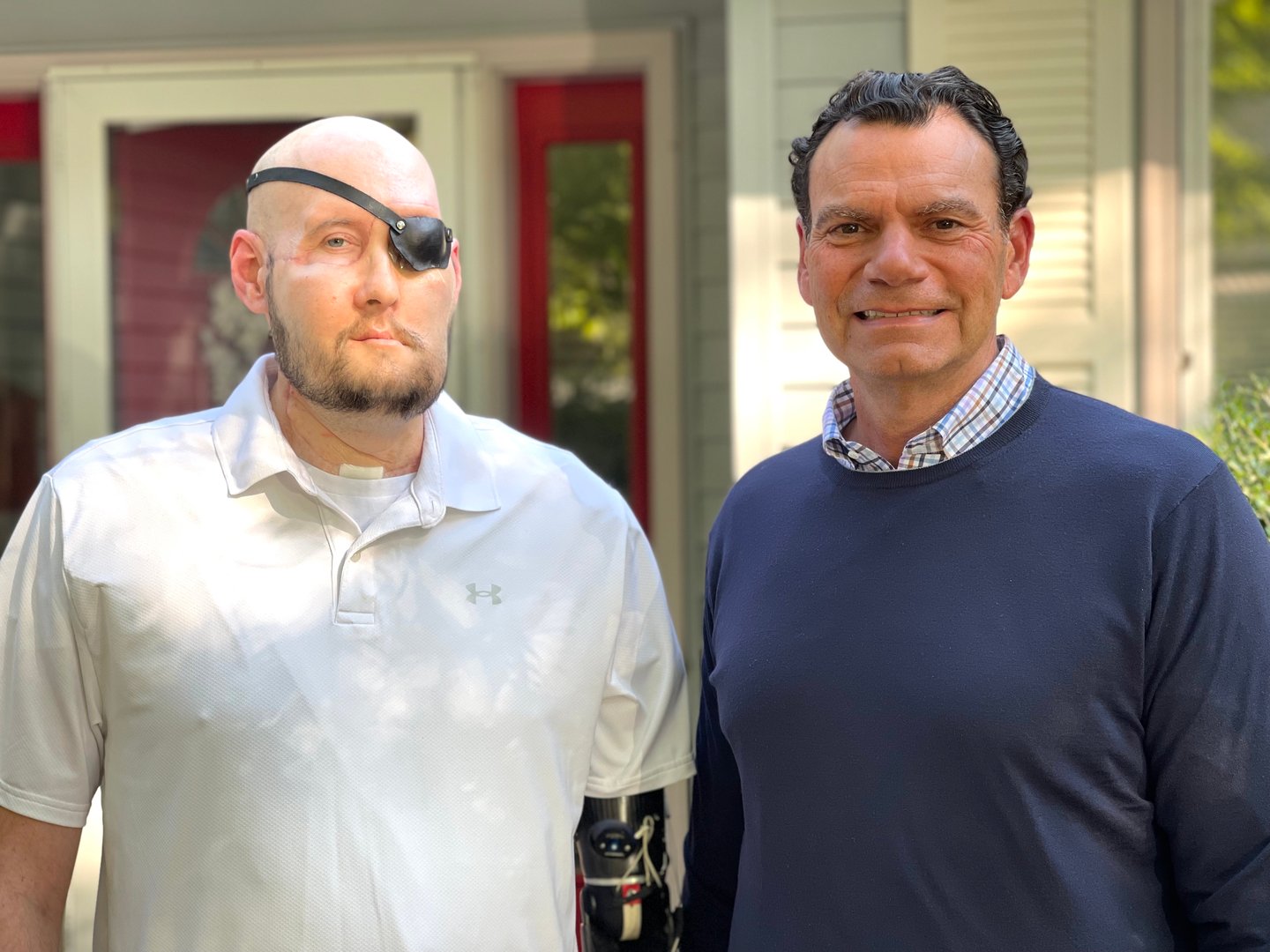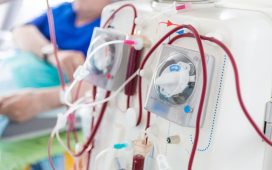Surgery took 21 hours and a medical team of more than 140 surgeons, nurses, and other health care professionals
By Physician’s Briefing Staff HealthDay Reporter
THURSDAY, Nov. 9, 2023 (HealthDay News) — An Arkansas man maimed by a massive electrical shock to his face has successfully received the world’s first whole-eye and partial face transplant.
In a 21-hour surgery performed in May, Eduardo Rodriguez, M.D., director of the Face Transplant Program at NYU Langone and his team transplanted an entire left eye and the portion of a face from a single donor onto Aaron James, a 46-year-old military veteran from Arkansas who survived a work-related, high-voltage accident. It is still unknown if James will regain sight in the left eye, but in the months following surgery, it has shown remarkable signs of health, doctors say. This includes restored blood flow to the retina.
James survived a deadly 7,200-volt electrical shock in June 2021 when his face accidentally touched a live wire while he was working as a high-voltage lineman. He underwent multiple reconstructive surgeries but still had extensive injuries, including the loss of his left eye, entire nose and lips, front teeth, and chin down to the bone.
NYU Langone doctors provided some guidance on James’ case two months after his injury, consulting with specialists at a Texas medical center during early-phase reconstructions. For example, when Texas surgeons had to remove James’ left eye due to severe pain, the NYU surgeons recommended that the optic nerve be cut as close to the eyeball as possible. That would preserve additional nerve length and maximize future reconstructive options.
They discussed the possibility of a face transplant with James over the next year and performed an initial evaluation for the transplant in June 2022. James and his doctors decided to go ahead with a whole-eye transplant along with the face transplant, even though it might not restore his sight.
The May 27 transplant surgery included a team of more than 140 surgeons, nurses, and other health care professionals, NYU Langone says. Two highly skilled teams simultaneously operated on both the donor and patient, adhering to a carefully planned timetable.
It is common to replace a cornea in the human eye, but whole-eye transplants to restore vision have remained elusive due to the complex nature of the eye. For an eye transplant to be successful, the eye’s connection to the brain via the optic nerve must be successfully regenerated, blood flow must be restored to the retina, and the recipient’s body has to be immune-suppressed to avoid rejection. Rodriguez and his team decided to combine the donor eye with donor stem cells derived from his bone marrow, to hopefully enhance nerve regeneration. The stem cells were injected into James’ optic nerve during the transplant procedure. The team also transplanted the left eye socket, including the orbital bones. In addition to the revolutionary eye transplant, surgeons also transplanted the nose, left upper and lower eyelids, left eyebrow, upper and lower lips, and underlying skull, cheek, nasal, and chin bone segments.
James spent just 17 days in an NYU Langone intensive care unit following the surgery, one of the shortest recoveries among Rodriguez s face transplant recipients. James has since entered physical and occupational rehabilitation and speech therapy. He also has undergone follow-up surgery to tweak the transplant and will have dental treatment in the coming months.
Copyright © 2023 HealthDay. All rights reserved.








